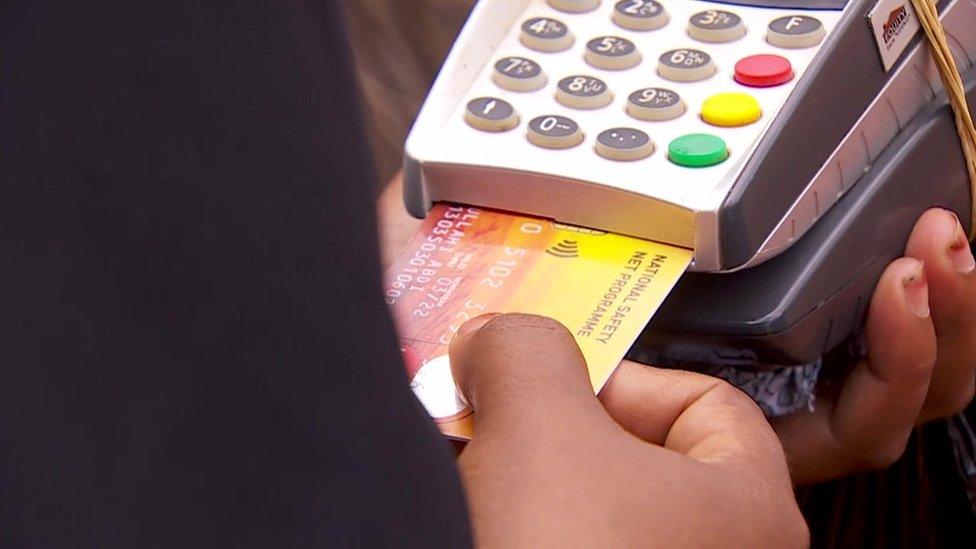UK's aid budget: Decision time for Theresa May
- Published
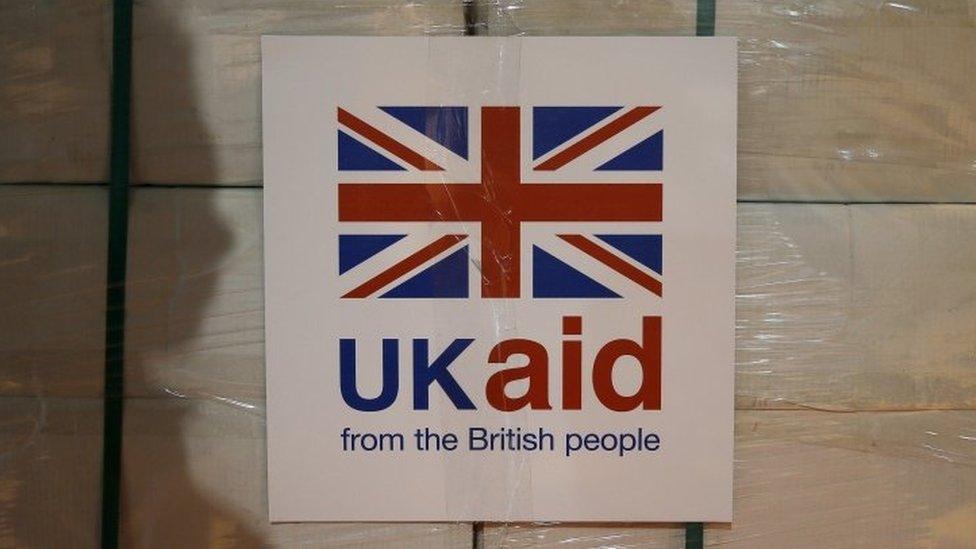
A few weeks ago, Theresa May did something rather unusual. The prime minister went to Scotland and delivered a speech in praise of Britain's aid budget. As far as I can determine, this was a first. She praised the Department for International Development (DfID) that delivers that budget.
In an unexpected flurry of alliteration, she praised the aid money being spent in Somalia, South Sudan and Syria. She said UK aid "helps millions around the world and speaks strongly to the values that we share as a country".
But here's the thing: at no point did she mention the government's commitment - set out in law - to spend 0.7% of Britain's national income on foreign aid.
As ever, Mrs May was hedging her bets. For she is torn between competing pressures. On the one hand, she is under political pressure from supportive newspapers such as the Daily Mail to scrap the commitment. Some of her MPs are joining in, publicly attacking a £13bn budget they see as too large and too wasteful.
In a time of austerity and rising deficits, there are genuine questions about whether the aid budget should continue to be protected when others are facing cuts.
In these circumstances, it might seem tempting for the prime minister to ditch yet another of her predecessor's legacy policies.
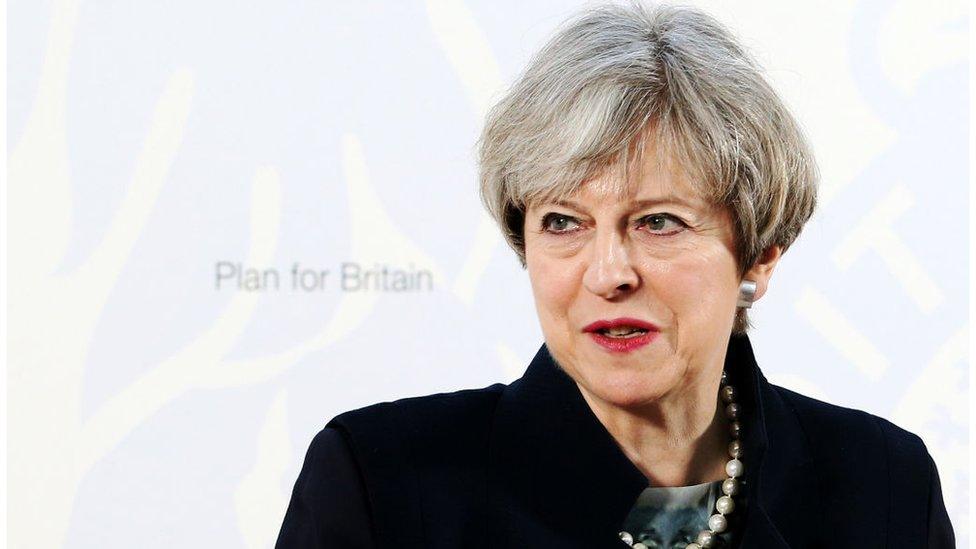
In a speech in Scotland, Theresa May praised the UK's international aid budget and DfID
Yet Mrs May has also found it rather useful in recent months to praise the aid budget.
When she argues that Brexit does not mean Britain turning in on itself, she recites a list that includes the UK's seat on the UN Security Council, its membership of Nato, and its commitment to spend 2% of national income on defence and 0.7% on international aid.
In Scotland, she used Britain's aid budget - and the soft power that it provided - to show what she thought the UK could deliver if the union continued.
She also likes the argument that Britain's aid budget gives it global diplomatic clout.
Until recently, there was an assumption at Westminster that the aid commitment would be up for grabs towards the end of the Parliament, ahead of an election in 2020.
One scenario was that Mrs May might have offered to drop the aid target to mollify Tory MPs unhappy with whatever compromise deal she negotiates on Brexit.
But the decision to go for an early election has accelerated that debate.
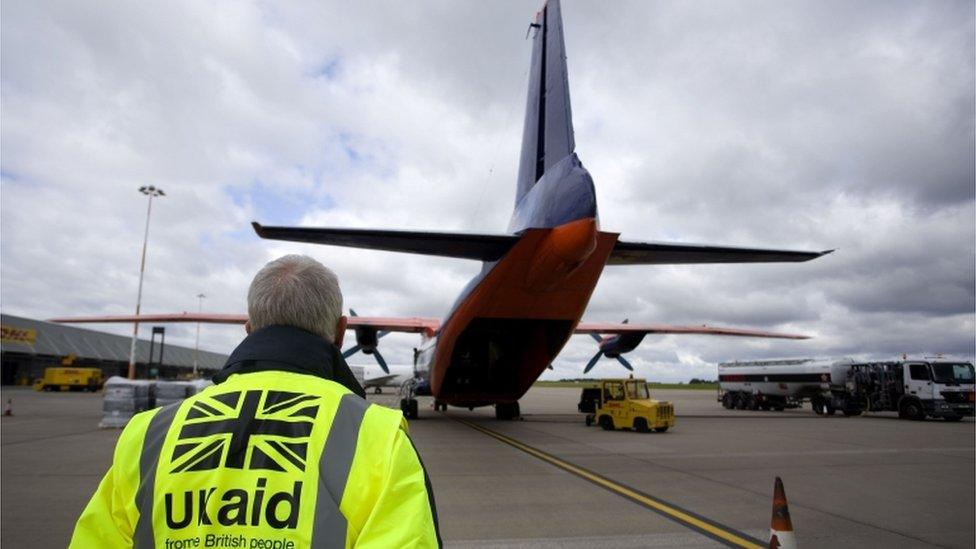
Its critics say that the UK's £13bn aid budget is too large and too wasteful
And right now there is a vacuum of uncertainty.
The Conservatives are refusing to say whether they will renew the 0.7% target in their election manifesto.
At Prime Minister's Questions this week, Mrs May gave an ambiguous, non-committal answer when asked to reaffirm the pledge.
Her party spokesman said simply that the government would continue to support the poorest people around the world.
As for the manifesto and the aid commitment, he said only that "we will set out our plans in due course".
It is into this debate that the global philanthropist Bill Gates is making his pitch, warning the prime minister that dropping the aid target would "cost lives".
The uncertainty about Mrs May's intentions has prompted much speculation.
Some Tories say the aid target should be merged into a new defence spending target.
Others say it should be redefined to include more security related needs.
Others again say the target should be kept but with different definitions, so that it has to be met not every 12 months but over an entire five-year Parliament.
This would mean that DfID would not have to spend money rashly at the end of the financial year simply to meet what is an artificial target.
So it is decision time for Theresa May on aid.
She could keep the 0.7% in her election manifesto.
This would incur the wrath of some Conservative MPs and voters who think the bloated aid budget would be better spent on schools and hospitals at home.
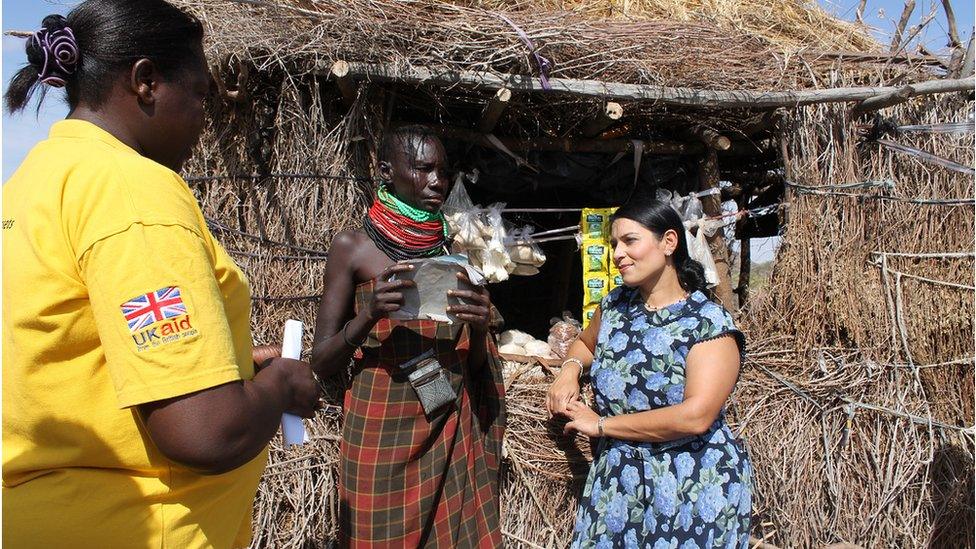
Development Secretary Priti Patel says the UK's aid budget promotes Britain's national interest
But it would also avoid a distracting row that might bleed into the election campaign.
The last thing the prime minister wants to do right now is upset potential Tory voters on the liberal left who are disillusioned with the Labour leadership.
Nor does she want to give the Liberal Democrats an early election gift.
Or the prime minister could drop or amend the aid target.
This would please her political base, but it would also make it harder to argue that Britain was showing global leadership.
Spending less on aid would reduce Britain's soft power, making it less easy for ministers to open doors in foreign capitals.
It would also undermine all those arguments that she and other ministers - such as the Development Secretary Priti Patel - have been making in defence of UK aid: namely that it promotes Britain's national interests by deterring refugees from Europe and turning fragile states into potential trading partners.
In that speech in Scotland, Theresa May said: "We are a kind and generous country... a big country that will never let down - or turn our back on - those in need.
"We are a country that does, and will always, meet our commitments to the world - and particularly to those who so desperately need our support."
We are about to find out what those words mean.
- Published4 April 2017
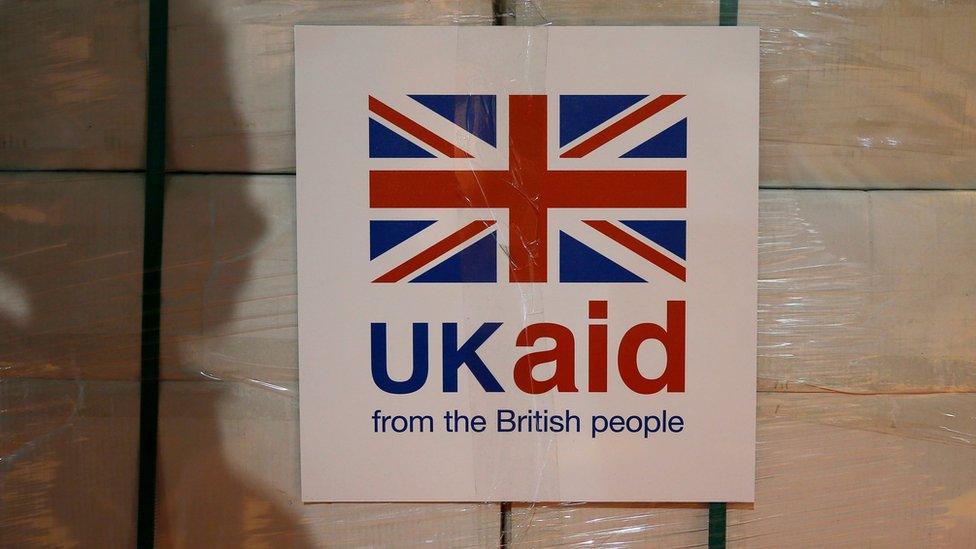
- Published1 March 2017
